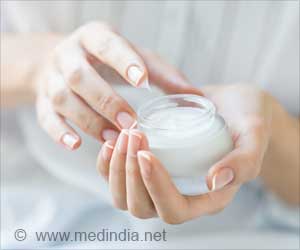Study determines the association between vitamin D levels during a period of clinical remission of ulcerative colitis and risk of subsequent relapse.

- Ulcerative colitis (UC), has been associated with lower levels of vitamin D.
- New study states that lower levels of vitamin D during disease remission can lead to relapse of UC.
- Serum levels of vitamin D of 35 ng/mL or less during periods of clinical remission increase the risk of UC relapse.
UC is a chronic inflammatory bowel disease of the large intestine/colon that causes inflammation and ulcers in the lining of the colon.
Ulcerative colitis is the result of an abnormal response by the body’s immune system.
In people with IBD immune system mistakes the materials in the intestine for foreign, invading substances and sends white blood cells to fight them resulting in chronic inflammation and ulcerations.
As many as 907,000 Americans may get affected by ulcerative colitis. Both men and women are equally likely to be affected, and most people are diagnosed in their mid-30s.
Patients with active disease have had lower vitamin D levels, but it has been unknown whether they increase disease relapses.
"However, it has been unclear if the flare-up was lowering vitamin D levels, or if low vitamin D levels were causing the flare-up. We thought that if we looked at vitamin D levels when the disease was inactive and then followed patients moving forward, the impact of baseline vitamin D levels on future events may be clearer." Moss added.
Researchers conducted a physician-blinded prospective study of 70 patients who were in clinical remission.
Their blood samples were collected to measure serum vitamin D levels and extent of inflammation was assessed through blood tests and biopsies.
After following the patients for 12 months, researchers compared the data from participating patients who remained well and the others who experienced relapses.
The investigators found that in patients who experienced relapse, the mean baseline vitamin D levels were lower.
"Patients who had higher vitamin D levels when their disease was in remission were less likely to experience a relapse in the future," said John Gubatan, MD, a physician at BIDMC and first author of the study.
"This suggests that higher vitamin D levels may play some role in preventing the UC relapse." Gubatan added.
The researchers found that levels of blood vitamin D, greater than 35ng/ml offered a protective role and that was within the range recommended by the National Institutes of Health for a healthy individual.
Researchers are now examining the link between vitamin D and a protein called cathelicidin in the cells lining the colon.
The link may have beneficial effects on microbial composition, an important component of a healthy colon.
Investigators are trying to identify how vitamin D may protect cells in the colon.
References
- What is Ulcerative Colitis? - (http://www.ccfa.org/what-are-crohns-and-colitis/what-is-ulcerative-colitis/?referrer=https://www.google.co.in/)
- John Gubatan et al. Low Serum Vitamin D During Remission Increases Risk of Clinical Relapse in Patients With Ulcerative Colitis. Clinical Gastroenterology and Hepatology; (2017) doi.org/10.1016/j.cgh.2016.05.035
Source-Medindia















